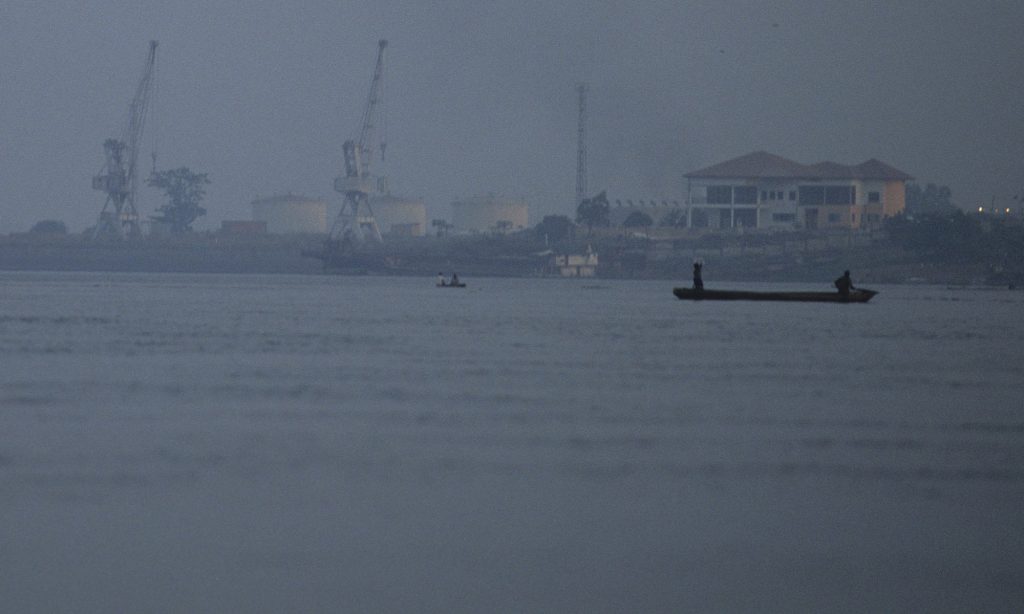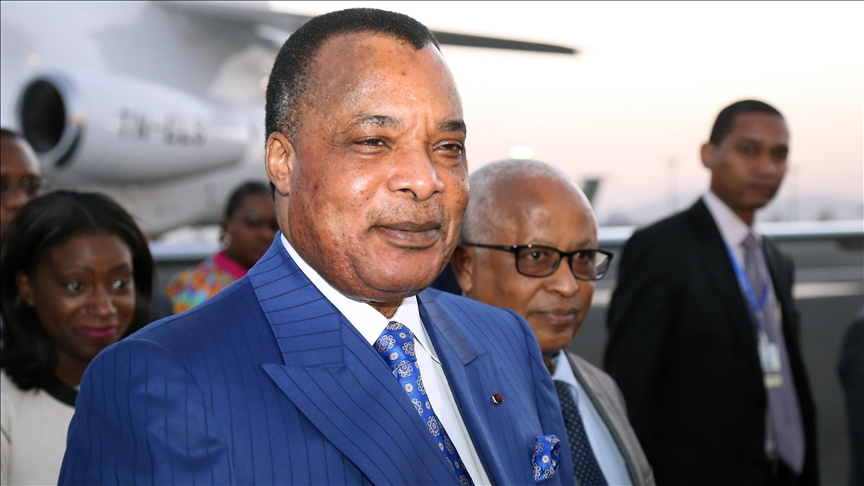At 77, Congo’s President Sassou Nguesso is four times older than the average Congolese, whose median age is 19, according to UN figures.
He’s been in office for more than 36 years, and on Tuesday, he was announced the winner of an electoral poll that international observers, religious leaders and the opposition unanimously agreed was flawed.
“At these times of uncertainty, the people need men of experience. And I am putting my experience at the service of all the young,” he said on the campaign trail.
But under his regime, many Congolese have little to show for their country’s enormous oil wealth. In October, the government announced that economy will contract by 8.6% in 2020.
The contraction was blamed on a record fall in global crude prices that caused huge economic suffering as the government struggled to fix budget deficits. Increased government expenditure to manage the coronavirus pandemic had also induced further strain.
In a cabinet document, the Ministry of Finance explained what drove the economic contraction in 2020. “The recession can be explained by the under-performance of all business sectors including in the oil, logging, transport and communication sectors.”
But the Central African country’s economic woes started earlier in 2014 following a drop in crude prices, and debt levels subsequently quadrupled to 129% of Gross Domestic Product in 2018.
The Republic of Congo is Africa’s seventh largest oil exporter, and the commodity contributes about 45% of its total GDP. Much of the oil is mined by foreign companies like Total, Chevron and Exxon Mobile, and their revenues are vital in powering Brazzaville.
In July 2019, Congo received its fourth multi-million dollar bailout from the IMF.
Rampant corruption and mismanagement by an autocratic regime means that little of those revenues end up helping the country. During the campaign trail, thousands of young Congolese lined up not to see the president but rather get their daily handouts. It became a shameful daily occurrence to see huge crowds of people assembled outside of the Ministry of Finance offices to receive t-shirts and food supplies as a reward for their public show of support for the beleaguered government.
Transparency International classed Congo 165th out of 179 countries in its 2020 Corruption Perceptions Index.
Members of the Sassou Nguesso family were placed under investigation in Paris in 2017 in a case involving alleged “ill-gotten gains”. Last July, the NGO Global Witness said US federal prosecutors were probing his son, Denis Christel Sassou Nguesso, over alleged embezzlement of several million dollars from the publicly-owned National Society of Petroleum of Congo (SNPC), a notorious black box that has been plagued by corruption scandals since its incorporation in 1998.

Background
President Nguesso was born in Edou, a rusty local town located 400 kilometers north of the capital Brazzaville, and his teenage years were spent in the military just after France’s colonial rule in Congo had ended in 1960.
Typical of his combative nature in years to come, Nguesso supported a 1968 movement that toppled President Alphonse Massamba-Debat and brought Marien Ngouabi to power.
Under the new administration, Nguesso was named head of a commando unit and later the defense minister.
In 1969, he co-founded the Marxist leaning Congolese Labor Party and in 1979, two years after Ngouabi was assassinated, Sassou Nguesso became head of state. He aligned his country with the Soviet Union but after its fall was forced to introduce multi-party elections in 1991.
Support from France
Nguesso has always had the support of France, which according to many economists and civil society activists has backed the president in return for huge shares of its rich oil reserves.
After Nguesso lost the presidential poll in 1992, he fled to exile in France, where he stayed until he emerged victorious in 1997. But that electoral win came at a cost as his “Cobra” militias backed by troops from Angola fought President Lissouba’s forces leaving thousands dead.
He has won every single election since then, in conditions that the opposition has slammed as fraudulent and thanks to a 2015 constitutional amendment that lifted a ban on presidential candidates older than 70.
In 2016, he won re-election in the first round with over 60% of the vote. The result was challenged by his two poll rivals Jean-Marie Michel Mokoko and Andre Okombi Salissa who are currently serving 20-year jail terms for allegedly “undermining state security”.
Turning to China
Over the years, China has surpassed former colonial power France to emerge as the Republic of Congo’s largest trading partner.
In November, under pressure from Chinese authorities, President Nguesso and four cabinet minister issued a decree terminating a contract with Australian miner Sundance Resources to develop the huge Mbalam-Nabeba iron-ore deposit, subsequently awarding three new permits to a relatively unknown Chinese-backed company, Sichuan Hanlong Group.
Sundance had just began operations in Northern Congo in 2020, and invested almost $300 million.
Back in 2013, Sichuan attempted a $1.2 billion takeover of Sundance that would have given it control of the iron-ore project.
Congo’s iron-ore projects are estimated to hold at least 500 million tons of ore.

